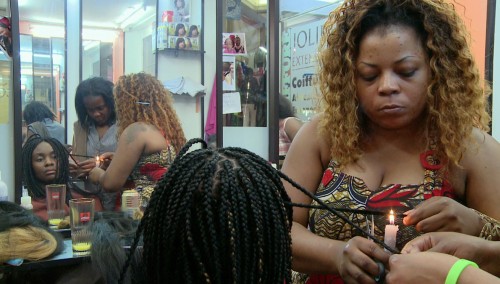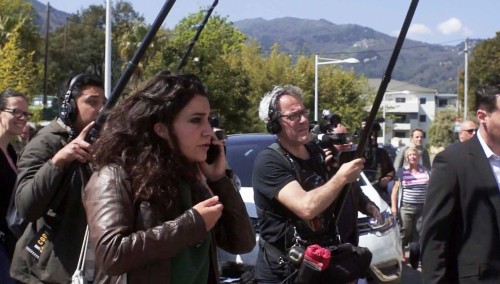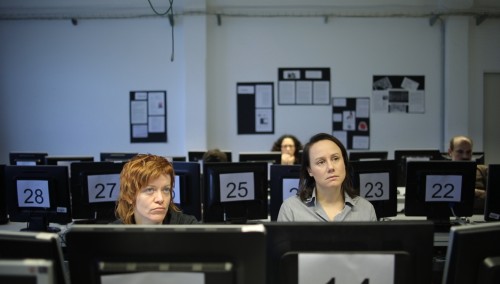Working Worlds 2019
The filmic depiction of working women frequently employs stereotypes – between hardcore business ladies, stressed-out mothers and hopeless romantics, it can be hard to find realistic and differentiated portrayals. The reality is that working women with the same training still earn less than men all over Europe and are threatened by old-age poverty and financial dependence. They have fewer career opportunities and whenever social supports are cut, they are more likely to be affected. The conservative role allocation lives on, and, through rightwing political trends, is even on the rise. Also, there are still more than enough men who value their careers over their partners’, and women who struggle with the double burden of taking care of both household and children and their jobs.
Working Worlds 2019 brings together two documentaries and two feature films that each revolve around a working woman. Four films, four individual stories, four women linked through their determination, who all appear as lone fighters for their cause. They strive for independence and are confronted with pressure from their families, their bosses, or society as a whole.
A credible portrayal of the social and personal downfall of a woman in her late thirties can be found in the feature film The Chair’s Game. Ever since she was replaced by an intern, a publicist living alone muddles through one unsuccessful job interview after the other, while the employment office forces her to attend pointless training programs. In a society that defines itself through success, she is fighting for her social status, and against poverty – until she has had enough.
When her family’s financial situation in crisis-ridden Greece takes a turn for the worse, the housewife Panayota has had enough as well, and takes a job for the first time in her life. At work the functionally illiterate woman is confronted with exploitative conditions, low pay, and short-term contracts, but she also encounters solidarity among her colleagues. Her unemployed husband does not take her or her job as a cleaner seriously, and feels threatened by the shift of power in the conservative household. Despite the adverse conditions, employment is a liberating force and a small step towards emancipation and economic autonomy for the protagonist in Nikos Labôt’s realistic study Her Job.
The young journalist Astrid must also face a new challenge in doing her first election coverage for a French TV station. The documentary First Campaign accompanies her in her job that is defined by time pressure and the media crowd surrounding the presidential candidate Emmanuel Macron.
At Jolie Coiffure looks at a different working world, one that Europe’s white population in particular may only know from the look through a shop window. Sabine from Cameroon runs a tiny hairdresser’s in the Matongé neighborhood in Brussels that is almost exclusively frequented by women from Africa. Sabine’s journey to Belgium first led her to Lebanon, where she only found suffering and exploitation. Seven years ago she set out on her way to Europe, into a working environment marked by the uncertainty about her residential status, all while white tourists walk by and the police execute raids outside her door.




